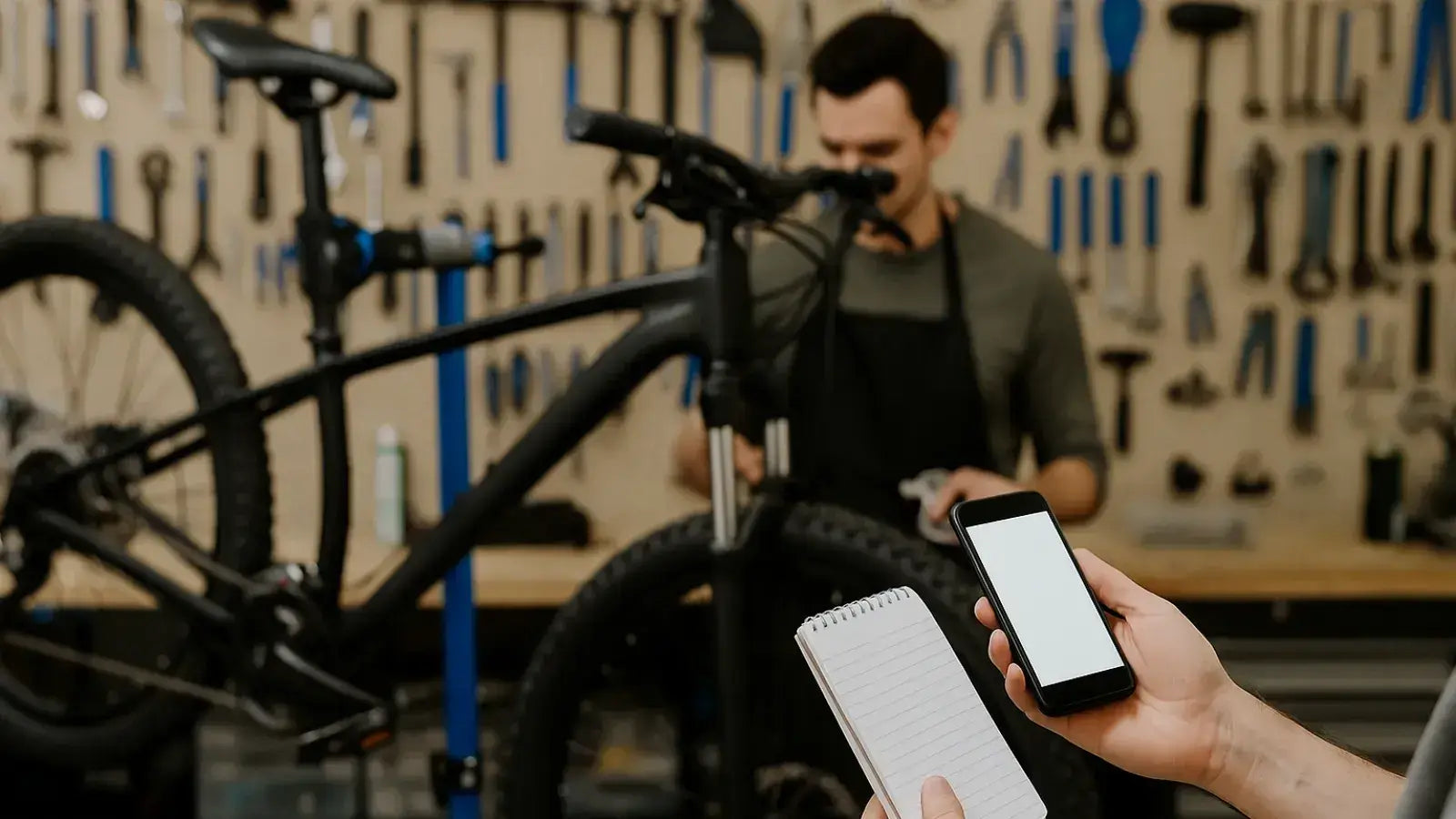
How Much Does a Bike Tune Up Cost? Your 2025 Tune-Up Guide
Your Quick Guide to Tune-Ups
You're asking two simple questions: "How much does a bike tune up cost?" and "How can I find a reliable ebicycle tune up near me?" Let's get right to it. Based on current industry averages, a basic bike tune-up will typically cost between $50 and $100. More comprehensive service packages that include deeper cleaning and more detailed adjustments range from $150 to over $300.
These prices are for labor only; the cost of any replacement parts is extra. This guide will break down what those service packages include, reveal the common "hidden" costs, and give you a step-by-step method for finding a trustworthy local shop you can count on.
Bike Tune Up Cost Breakdown: Labor, Packages & Value
What are you actually paying for when you get a bike tune-up? Whether you're searching for a typical bike tune up cost or want to compare bicycle tune up cost packages, it's important to understand what you're paying for and why. You're paying for a mechanic's time, expertise, and use of specialized tools to ensure your bike is safe, efficient, and enjoyable to ride.
More than just improving performance, regular bike tune-ups are essential for your safety. If your bike is used to transport children or ridden by older adults, regular tune-ups are even more important. Safety-critical systems like brakes, steering, and tire grip must be in perfect condition. When you think about how much does a bike tune up cost, consider it a preventive investment in your family's safety. A poorly maintained bike—whether it’s a hybrid, road, or mountain bike—can lead to accidents caused by loose headsets, worn brake pads, or stretched chains. If you're wondering how much does a bike tune up cost versus an emergency room visit, you'll realize it's a smart investment. To make an informed decision, you need to understand the different levels of service most shops offer.
As a rider who's helped maintain bikes across all styles—from city commuters to full-suspension e-MTBs—I’ve seen firsthand how even a $50 tune-up can prevent hundreds in damage. In this guide, we’ll use real-world insights from pro mechanics to help you decode what you're really paying for.
Bike Tune-Up Packages Explained
Nearly every bike shop has its own names for service packages—"The Standard," "The Pro," "The Works"—which can be confusing. However, they almost always fall into four distinct tiers. We've created this "Tune-Up Translator" to help you compare apples to apples when looking at a shop's service menu.
🚲 Basic Tune-Up
Cost: $50 – $100
Best for: Bikes in good shape that need minor adjustments.
Includes:
- Brake & gear adjustment
- Chain lubrication
- Tire inflation
- Bolt & fastener safety check
🔧 Standard / Annual Tune-Up
Cost: $100 – $180
Best for: Yearly maintenance or used bikes getting back into action.
Includes:
- All basic tune-up services
- Minor wheel truing (on-bike)
- Drivetrain inspection
- Bike wipe-down
🛠️ Comprehensive / Major Tune-Up
Cost: $180 – $300
Best for: High-mileage bikes or those not serviced for over a year.
Includes:
- Deep drivetrain cleaning (components removed)
- Wheel truing (truing stand)
- New cable & housing installation
⚙️ Complete Overhaul
Cost: $300+
Best for: Restoring old bikes or prepping bikes for resale.
Includes:
- Full disassembly & reassembly
- Hub, headset, and bottom bracket overhaul
- Frame and fork polishing
Tune-Up Costs for E-Bikes & Mountain Bikes
Not all bikes are created equal when it comes to service. Expect to pay a bit more if you have an e-bike or a full-suspension mountain bike.
E-Bikes: Servicing an e-bike requires more than just mechanical skill. Mechanics need to connect the bike to diagnostic software to check for errors and update firmware. The bikes are also heavy and cumbersome to work on. Because of this, most shops add an e-bike surcharge of $20 to $50 on top of their standard tune-up prices.
🚴E-Bikes vs. Standard Bikes: What’s Different?
| Feature | Standard Bike | E-Bike |
|---|---|---|
| Weight | ✅ Light & maneuverable | ⚠️ Heavier, needs lifting tools |
| Tune-Up Complexity | ✅ Basic adjustments | 🧠 Requires diagnostic software |
| Extra Cost | ❌ Usually flat rate | 💲 +$20–$50 e-bike surcharge |
Full-Suspension Mountain Bikes: The pivot bearings in the frame's suspension linkage and the service for the fork and rear shock are highly specialized jobs. This maintenance is almost never included in a standard tune-up package and is billed as a separate, significant service.
Is it worth paying for a bike tune-up?
Absolutely. Whether you're a casual rider or daily commuter, a professional tune-up ensures your bike runs smoothly and safely. When you consider how much does a bike tune up cost versus the cost of repairing damage caused by neglect—or worse, medical bills from an accident—the value becomes clear.
Hidden Bike Tune-Up Costs Most Riders Miss
One of the biggest points of confusion for customers is the difference between the advertised tune-up price and the final bill. It's crucial to remember that tune-up packages almost exclusively cover labor. The cost of worn-out parts that need to be replaced is always additional.
The Biggest Factor: Parts
During a tune-up, a mechanic inspects all the wear-and-tear items on your bike. Critical components like the headset and brake pads also deserve special attention during tune-ups. A headset that’s too tight or too loose can affect steering control, while poorly aligned brake pads can cause braking failure or persistent rubbing on the rim. If your chain is stretched or your brake pads are worn to the metal, they must be replaced for the bike to function safely and correctly. Here are some typical cost ranges for common replacement parts (parts only):
- Chain: $20 - $70
- Cassette: $40 - $150+
- Tires: $30 - $90 each
- Brake Pads: $10 - $40 per pair
- Cables & Housing: $20 - $50 for a set
Necessary A La Carte Services
Some essential maintenance tasks are too time-consuming or specialized to be included in a general package. If your bike needs one of these services, it will be added to your bill.
- Brake Bleed (for hydraulic brakes): $30 - $50 per brake
- Tubeless Sealant Refresh: $15 - $25 per wheel
- Suspension Fork/Shock Service: $80 - $200+
- Bearing Replacement (pivots, bottom bracket): Billed at the shop's hourly rate (typically $75-$100/hr).
A good mechanic acts like a doctor for your bike. During their inspection, they will identify these necessary repairs. This is why a final invoice can be surprisingly high, but it's not an upsell—it's what's required to get your bike back to a safe and reliable condition.
How to Find a Bicycle Tune-Up Shop Near You
Now that you understand the costs, how do you find a great bicycle tune up near me? Most people search for bicycle tune up cost near me to get a sense of local pricing, but understanding service tiers and hidden fees can help you compare options more accurately. A quality mechanic can make all the difference. Follow these four steps to find a shop you can trust for years to come.
🔍 Quick Self-Check Before You Call the Shop:
✅ Do they list tune-up packages and prices online?
✅ Do they work on your bike type (e-bike, MTB, vintage)?
✅ Do online reviews mention honest pricing and clear communication?
Answer "yes" to all three? That shop’s worth calling.
Step 1: The Digital Search
Start your search online, but do it strategically.
- Use Specific Terms: Search for "bicycle tune up near me," "bike repair [Your City]," or get specific with "Trek e-bike service [Your Town]."
- Look Beyond Page One: Don't just click the first result. Examine the top 5-10 results, including the businesses listed in the map pack.
- Investigate Their Website: A professional, trustworthy shop will have a modern website with an easy-to-find "Service" or "Repairs" page. They should clearly list their tune-up packages and starting prices.
This transparency is an excellent sign of a well-run business.
Step 2: Read Reviews Correctly
Don't just look at the star rating. The quality and content of the reviews are far more important. A 4.5-star rating with 200 detailed reviews is often a better sign than a perfect 5.0 with only 10 reviews.
- Scan for Keywords: Look for patterns. Do multiple reviewers use words like "honest," "fair price," "great communication," or "took the time to explain"? These are green flags.
- Check for Specifics: Do reviewers mention the type of bike they ride? If you have a high-end carbon road bike, look for reviews from other roadies. If you have a cargo e-bike, see if other e-bike owners are happy with the service. Read the 1-Star Reviews: Every business gets them.
The key is to see why. Was it a simple misunderstanding that the shop tried to resolve? Or is there a recurring pattern of poor communication, missed deadlines, or surprise charges?
Step 3: Make the Call or Visit
Once you have a shortlist, contact the shops. Your goal is to gauge their professionalism and expertise.
Here's what to ask: What's your current turnaround time for a standard tune-up? In peak season (spring and summer), this can be a week or more. A good shop will give you an honest estimate. Do you provide a free, detailed estimate before starting any work? The answer should be an enthusiastic "Yes." You should always receive a quote for approval. I have a [Your Bike Brand/Type]. Do you have experience working on these?
This is especially important for e-bikes, full-suspension ebikes, or vintage models. Will you call me to approve any extra costs for parts or labor before you proceed? This is the most important question. A reputable shop will never perform work or add parts without your explicit approval.
Step 4: Look for Community Hubs
Sometimes the best service isn't at the biggest shop.
- Community Co-ops: Non-profits like community-focused bike organizations are incredible resources. They often offer affordable shop time where you can use their tools and get guidance from volunteer mechanics.
- Local Cycling Groups: Ask for recommendations in local cycling Facebook groups or online forums.
An unsolicited recommendation from a fellow rider is often the most reliable review you can get. Local Media: Keep an eye out for articles in your city's magazines or blogs. You'll find that local publications often highlight trusted bike shops that are integral parts of the community.
DIY vs Professional Bike Tune Ups
Feeling adventurous or on a tight budget? Performing some basic maintenance yourself is a great way to save money and learn more about your bike. While complex jobs are best left to the pros, some tasks are perfectly suited for the home mechanic.
What You CAN Do at Home
With a few basic tools and some guidance from countless free video tutorials, you can easily handle these tasks:
- Cleaning your drivetrain (chain, cassette, chainrings)
- Properly lubricating your chain
- Checking tire pressure before every ride
- Performing a basic bolt check to ensure nothing is loose
When to See a Professional
Some jobs require expensive, specialized tools and a level of experience that takes years to develop. Unless you're a seasoned home mechanic, leave these tasks to a professional shop. If you purchased your bike online and assembled it yourself, consider scheduling a post-assembly tune-up. Many bikes arrive with under-torqued bolts or misaligned derailleurs that can affect safety and performance. Spending a small amount on professional adjustment now can save you more later—especially when how much does a bike tune up cost starts at just $50.
While many riders enjoy doing minor maintenance themselves, some issues—like internal headset tension or gear cable routing—require a mechanic’s expertise and tools. These professional services are what truly define the value behind how much a bike tune up costs.
- Wheel truing (straightening a wobbly wheel)
- Bleeding hydraulic brakes
- Adjusting indexed shifting problems
- Any service involving bearings (headset, bottom bracket, hubs)
- Suspension fork and rear shock service
For any questions you have along the way, online communities for cyclists are fantastic places to get advice from experienced riders and mechanics. The pricing ranges and service details listed here are based on 2025 estimates gathered from independent bike shops, e-bike specialists, and manufacturer-certified service centers across the U.S. and Europe.

Prepping Your Bike for a Tune-Up Visit
Want to get the best possible service and build a great relationship with your local mechanic? A little preparation goes a long way.
- Clean Your Bike: A mechanic's job is hard enough without having to work on a bike caked in mud and grime. A quick wash or wipe-down is a huge sign of respect and is greatly appreciated. Some shops even charge a cleaning fee for excessively dirty bikes.
- Be Specific About Problems: Instead of saying "it makes a weird noise," try to be more descriptive. For example: "I hear a clicking sound from the back of the bike, but only when I'm pedaling hard in the smallest cogs." The more information you can provide, the faster a mechanic can diagnose the issue.
Before you drop off your bike, make a note of specific issues like:
– “The chain skips under pressure”
– “Rear brakes feel spongy”
– “A creaking sound happens when pedaling uphill”
These help the mechanic diagnose faster and keep your bike tune up cost from ballooning due to misdiagnosis or unnecessary checks.
- Remove Accessories: Take off your lights, GPS computer, saddlebag, and water bottles before you drop off the bike. This prevents them from getting lost or damaged in a busy service area.
- Trust the Estimate: A good mechanic will give you a thorough estimate outlining the necessary work. Trust their assessment. Their goal is to make your bike safe and functional, not to sell you things you don't need.
Regular tune-ups don’t just keep your ride smooth—they extend your bike’s lifespan, protect your safety, and help you get the most out of every mile. If you're ready to simplify maintenance for good, explore our Leoguar Electric Bike range for models, designed with service-friendly features and long-term reliability in mind.
🔧 Still unsure how much a bike tune up should cost in your area? Contact our service advisors or browse certified tune-up partners near you for personalized estimates.
Frequently Asked Questions
1. How often should I get a bike tune up?
Most riders should get a tune-up once a year or every 2,000-3,000 miles. If you ride daily or in harsh conditions like rain, mud, or salt, you may need service every 6 months. So, how much does a bike tune up cost when it includes professional safety checks, drivetrain optimization, and bearing assessments? While a basic service may start at $50, costs can rise with added labor and parts—but those costs are far outweighed by the peace of mind you gain.
2. Can I ride my bike to the shop for a tune-up?
Yes, you can ride your bike to the shop as long as it's safe to do so. If your brakes aren't working properly or you hear grinding noises, it's better to transport your bike by car or ask about pickup services.
3. How long does a bike tune up take?
A basic tune-up typically takes 1-3 hours of work time, but shops often need 2-7 days to complete it depending on their workload. During busy seasons like spring, wait times can be longer.
Pro tip: Schedule your tune-ups in the off-season (late fall or winter) when bike shops are less busy. You might get quicker service and even off-season discounts. Planning ahead helps you reduce your bike tune up cost while avoiding long wait times in peak riding months.
4. What's the difference between a tune-up and an overhaul?
A tune-up focuses on adjustments and basic maintenance while keeping most parts in place. An overhaul involves completely taking apart your bike, cleaning everything, replacing worn parts, and reassembling it like new.
5. Should I tip my bike mechanic?
Tipping isn't expected at most bike shops since mechanics are paid hourly wages. However, if a mechanic goes above and beyond or fixes an emergency repair quickly, a small tip or positive online review is always appreciated.
6. Does an e-bike tune-up include software updates?
Not always. Some e-bike brands require proprietary software tools to run diagnostics or push firmware updates. These services may carry a separate charge, typically $20 to $50, depending on your model. If you're wondering how much does a bike tune up cost for an ebike, be sure to ask if software updates are included.
7. What is the average bicycle tune up cost near me?
The average bicycle tune up cost near me will vary depending on your location, shop reputation, and type of bike. Most urban areas price basic tune-ups between $60–$100, while advanced packages or e-bike services may run over $200.
About the Author
This guide was brought to you by the Leoguar Bikes team—bike lovers, mechanics, and e-bike specialists with over a decade of hands-on experience. We believe in honest service, clear information, and keeping your ride rolling smooth.

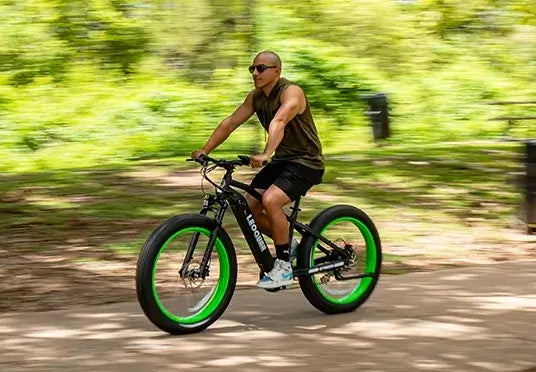
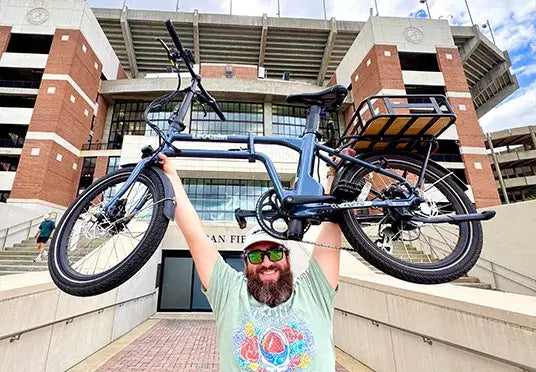
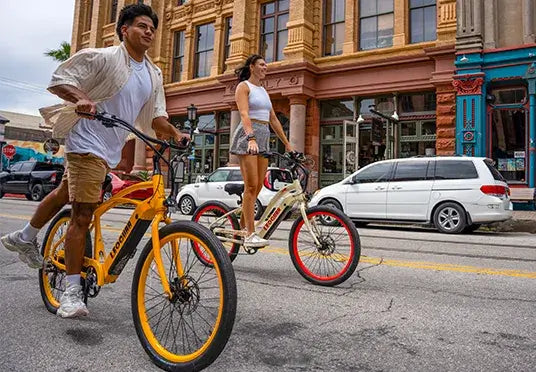

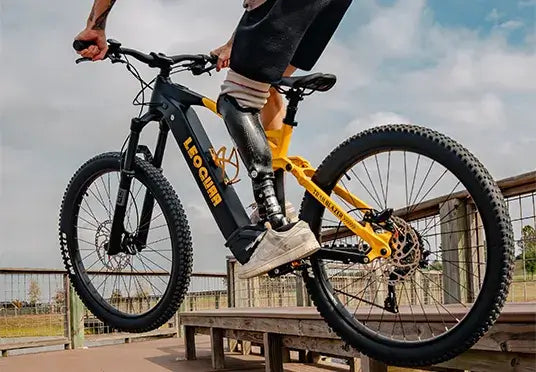
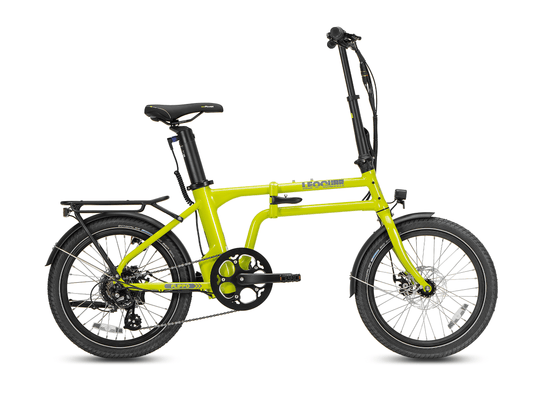

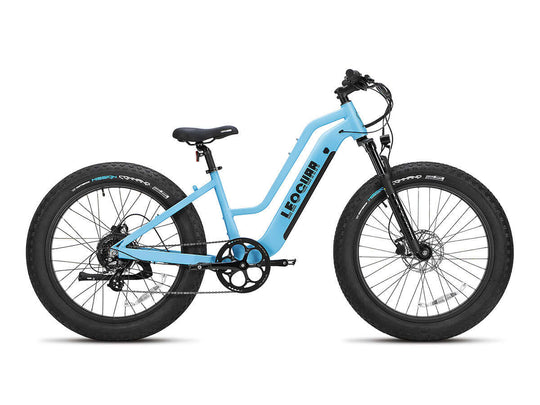
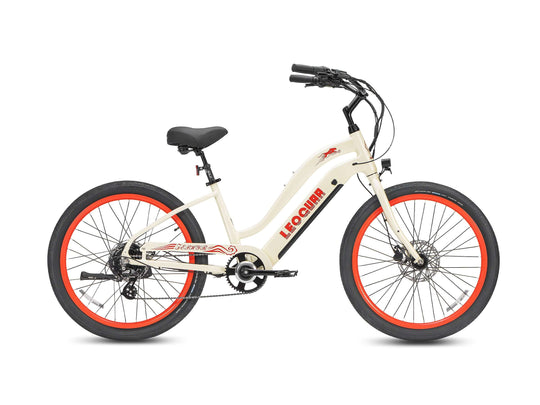
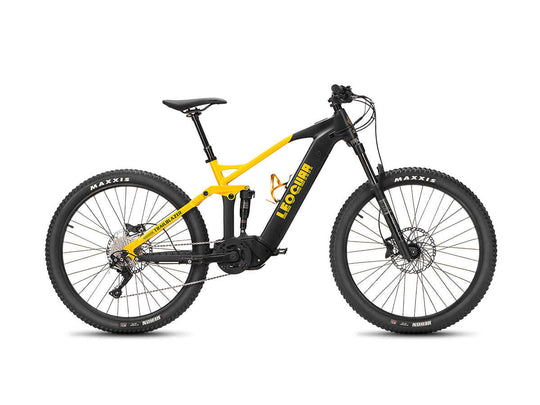
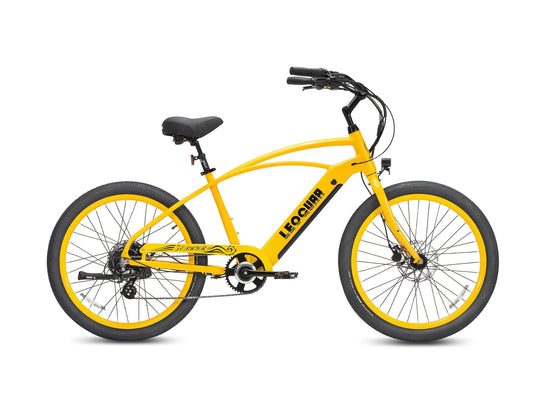
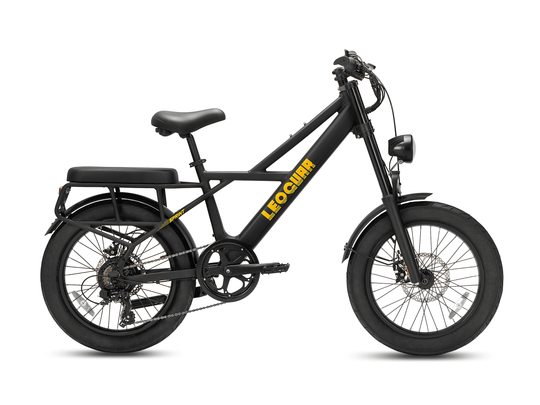
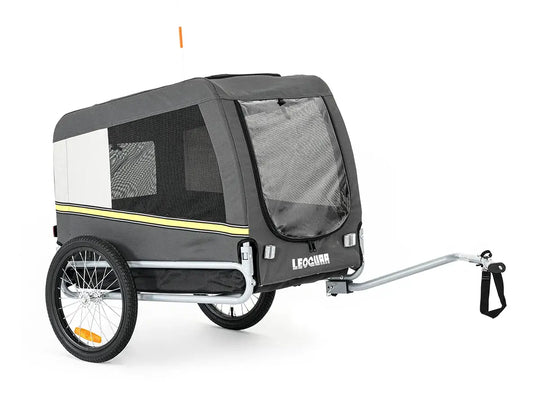
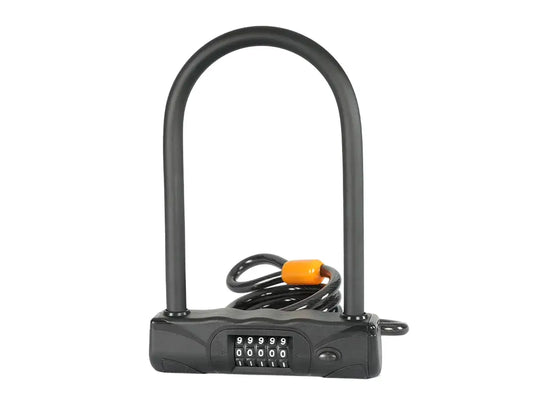
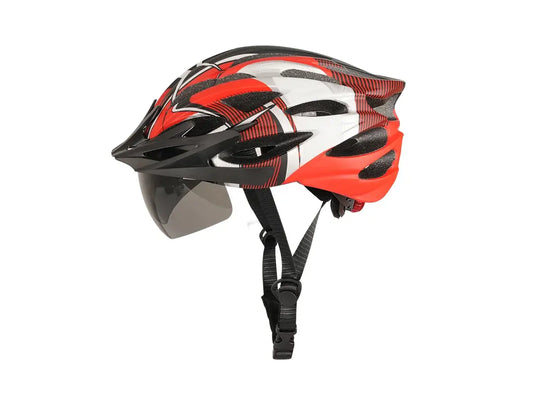
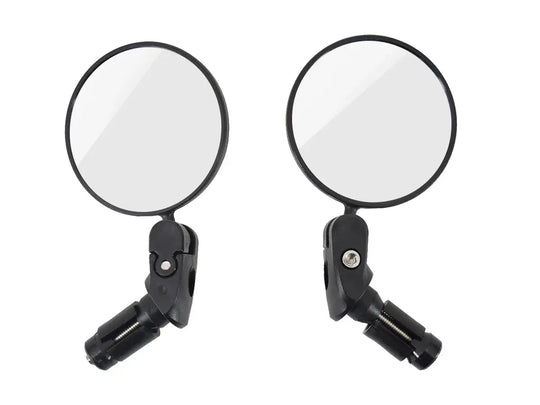
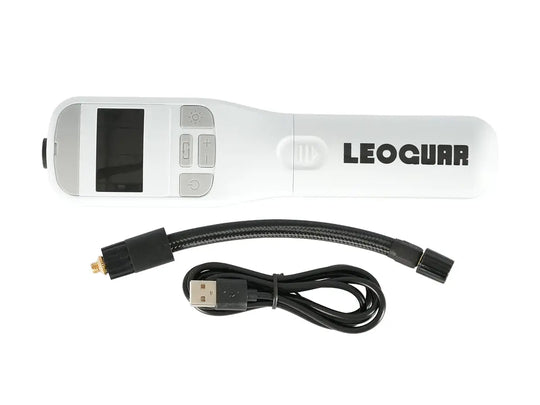
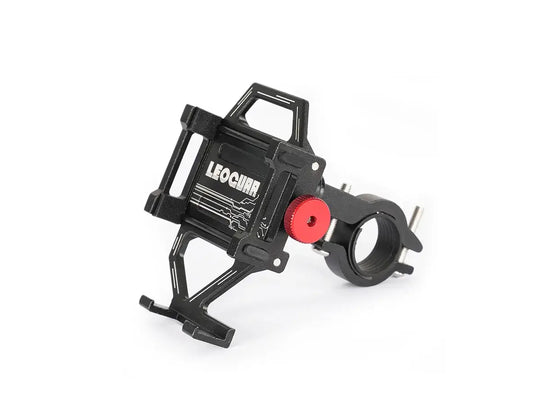
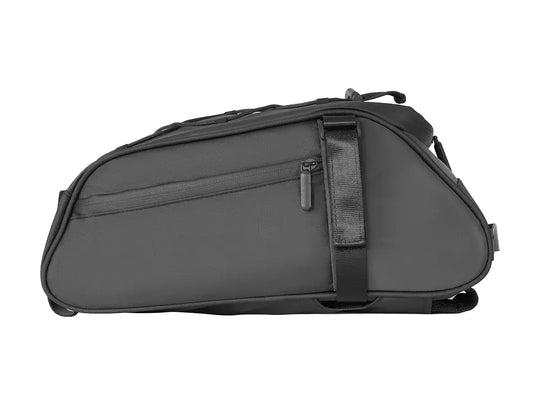
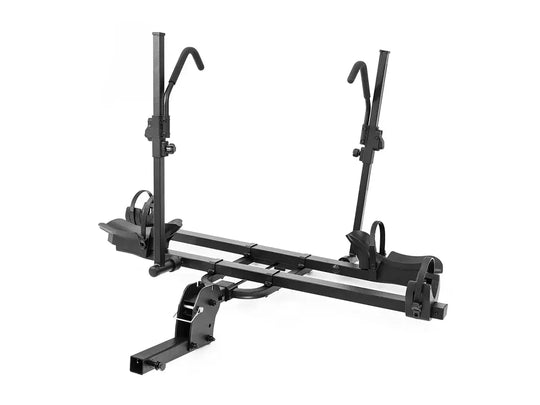
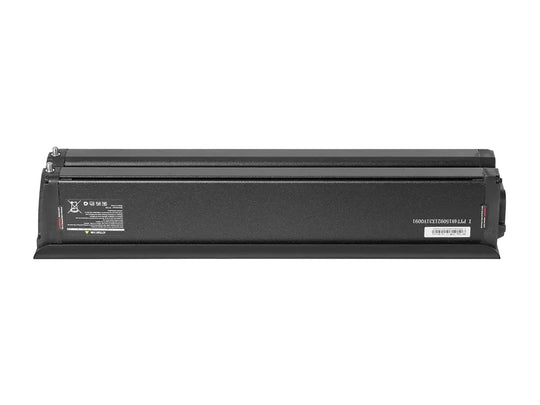
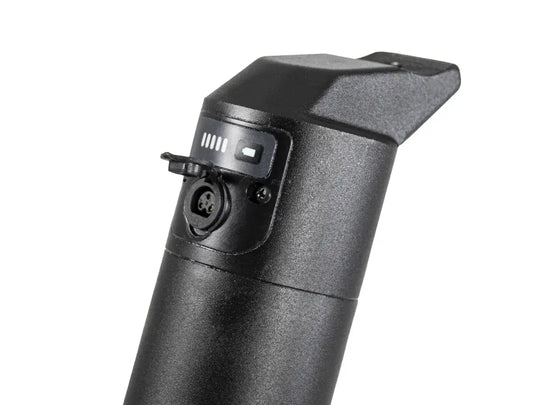
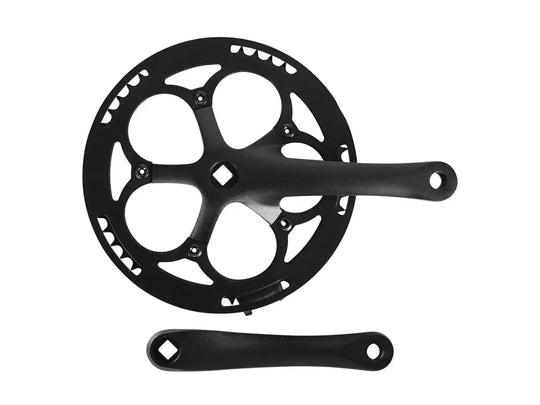
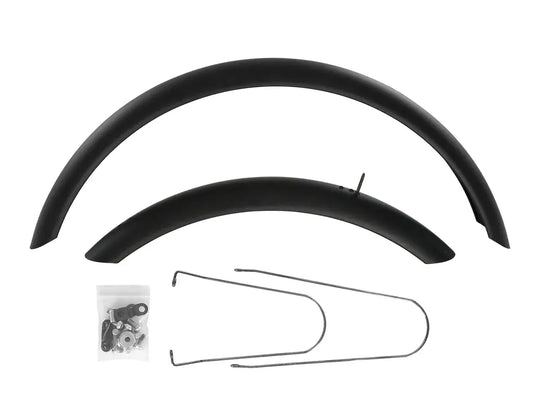
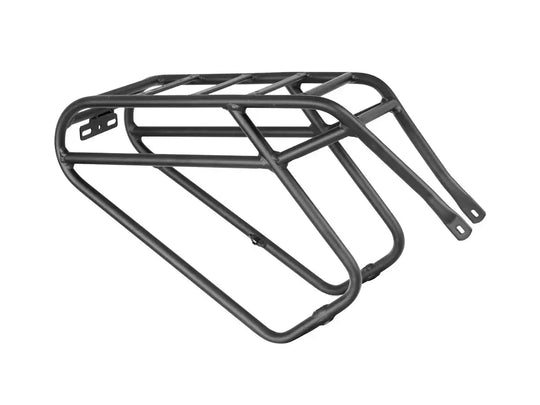
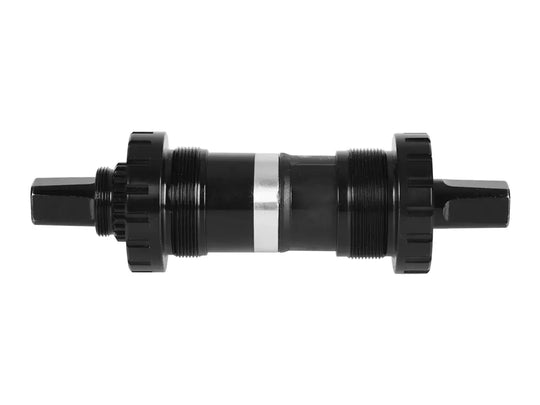
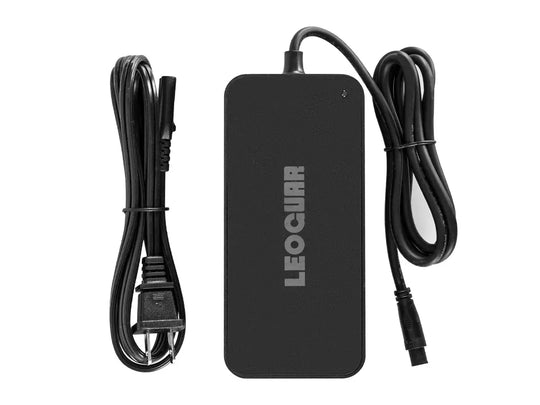
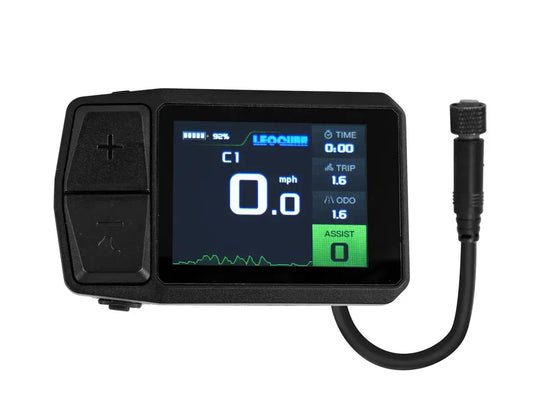
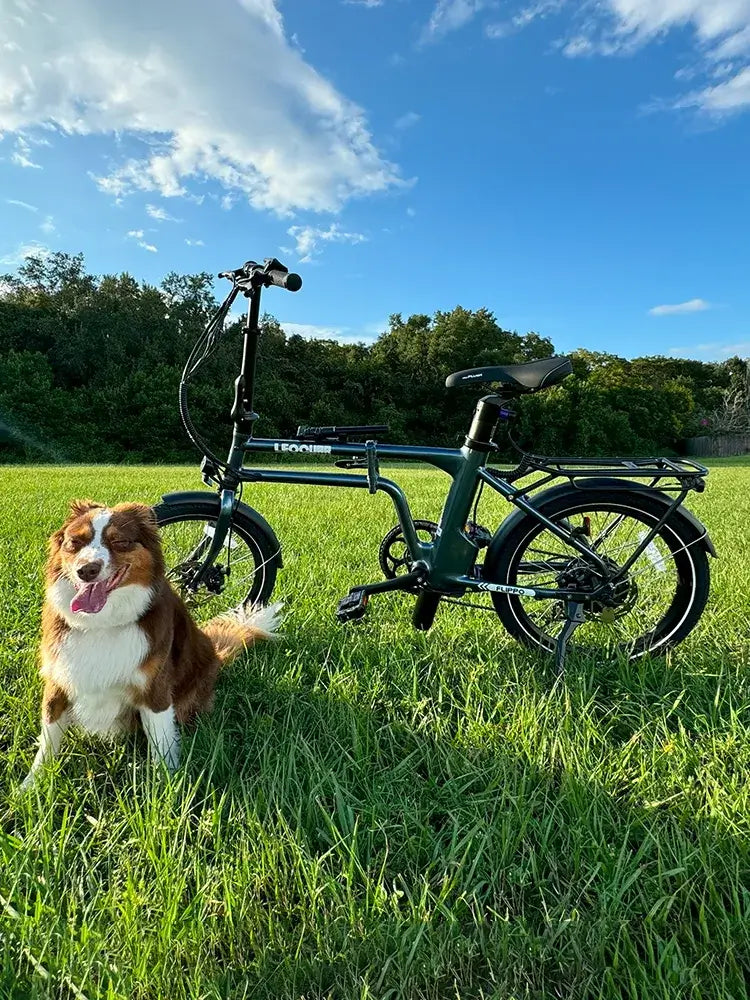
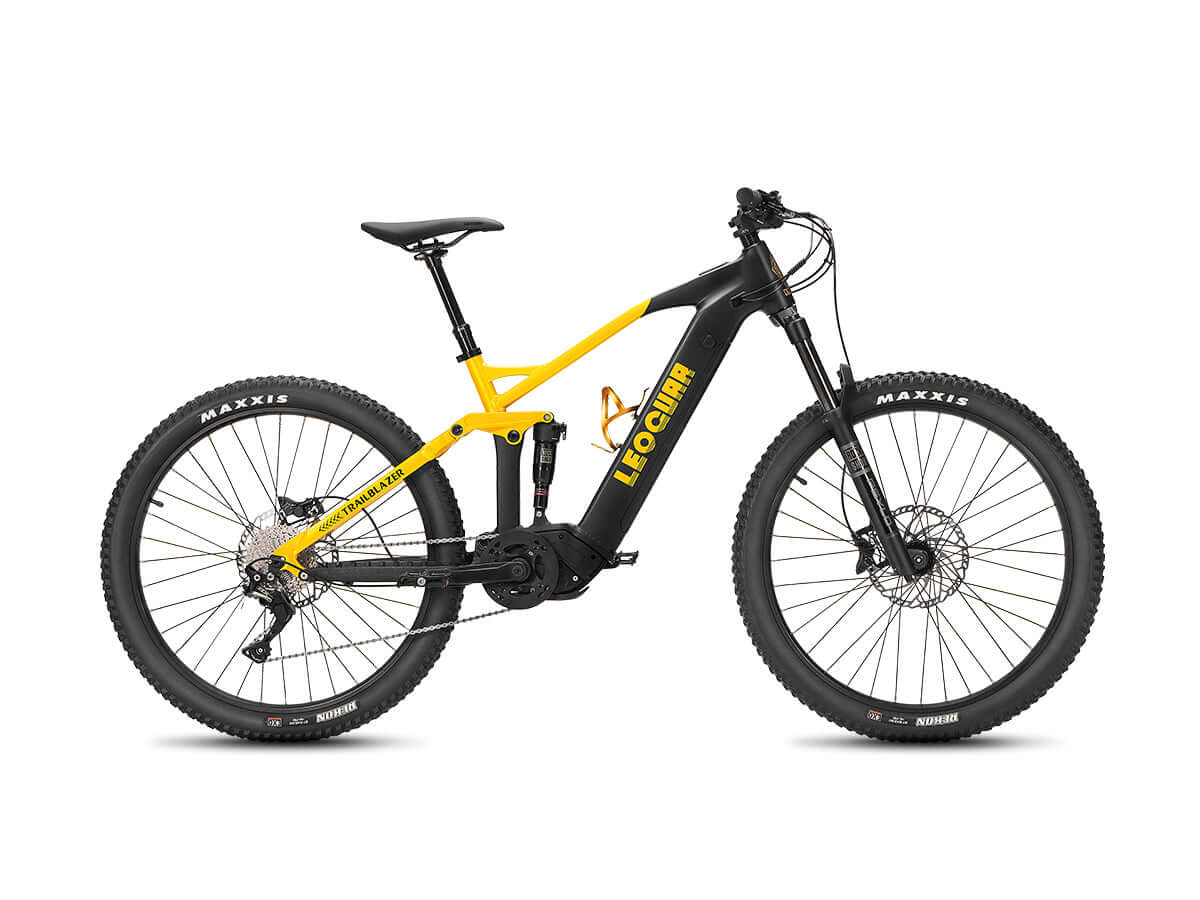







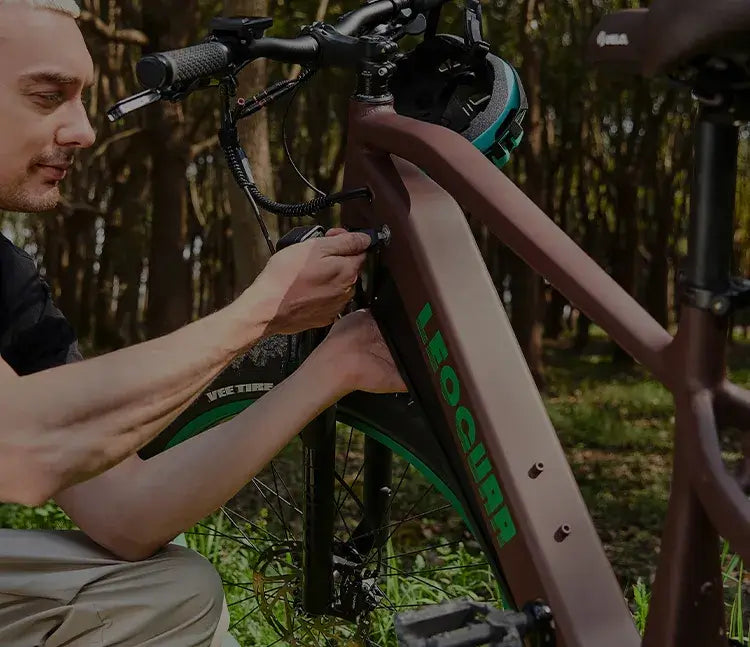
Leave a comment